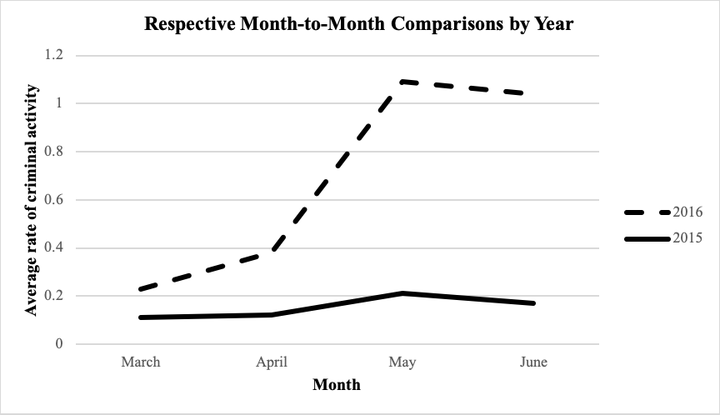
Abstract
Purpose: Past research indicates that increasing police arrests deters crime. However, little research exists on how restricting police arrests affects crime. The purpose of this paper is to test whether restrictions on police authority to arrest affects deterrence and crime rates.
Design/methodology/approach: The data consisted of crime statistics for 105 criminal suspects from a medium-sized police department in the western USA. A 2×4 mixed analysis of variance compared the suspects’ criminal activity for a four-month period before and after the arrest restrictions were imposed to ascertain how they affected deterrence and crime rates.
Findings: The restrictions on police arrests significantly increased the crime rate. Moreover, the crime rate increased the longer the restrictions on police arrest authority were in effect. In sum, the present study provides empirical support for the hypothesis that restrictions on police arrest authority decrease deterrence and increase the crime rate.
Practical implications: The present study suggests that restrictions on police arrest authority decreases deterrence and may significantly increase the crime rate. The restrictions may also have deleterious effects on police departments. Several states have recently imposed restrictions on police authority to arrest, and many other states are considering implementing such restrictions. Policy makers should carefully consider the results of the present study before implementing these policies.
Originality/value: The study fills a void in the crime literature by demonstrating that restrictions on police authority to arrest can decrease deterrence and increase the crime rate.